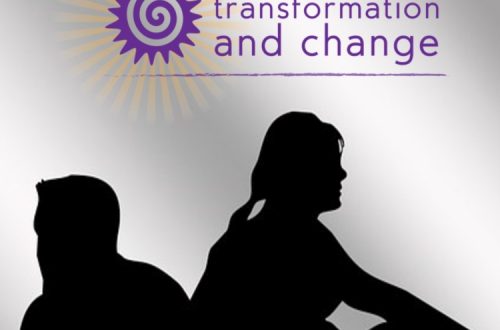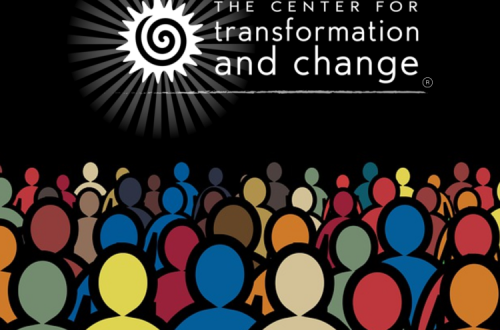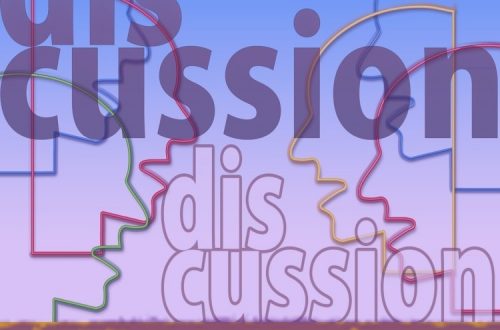I’m Not Racist…Or Am I? The Answer Might Be Yes.
Ever been told you were racist?
I have – or in reality, I was confronted about the racist impact of something I did – which FELT like they called me racist!
That was one of the worst things I could ever imagine happening to me – especially from a person of color who was a colleague at the time.
It was so traumatic an experience that I spent three very painful years in a dysfunctional pool of shame, fear and self-recrimination. I created my own isolation, yet there were people around me who would have helped me, if I had only reached out and chosen the path of courage and authenticity. Unfortunately, I chose a path of fear and shame.
I believe that all of us whites probably still struggle with some of the socialized racist messages we grew up with and those that are reinforced EVERY DAY in social media, TV, movies, magazines, etc.
So let’s get real – now. Take a few minutes and read through my checklist of common racist behaviors and attitudes of many whites.
You may learn something about yourself and answer the question: Are you racist?
Common Racist Behaviors and Attitudes of Many Whites
It’s time to get totally honest with yourself.
Many whites consciously – and unconsciously – hold onto common racist attitudes that fuel their racist behaviors in a split second, particularly when we’re not paying attention or react when we feel triggered.
Below are just a few of the common attitudes and behaviors that reinforce and perpetuate racist dynamics in organizations. (To access the full list, click here.) Check off any dynamics which you have observed in yourself or in others…
Some/Many Whites Tend to (consciously and unconsciously):
- Believe that people of color are not competent and are only hired/promoted to fill quotas
- Blame people of color for the barriers and challenges they experience; believe that if they “worked harder,” they could “pull themselves up by their bootstraps”
- Interrupt and talk over people of color
- Resent taking direction from a person of color
- “Walk on eggshells” and act more distant and formal with people of color
- Want people of color to conform and assimilate to white cultural norms and practices
- Want people of color to ‘get over it’ and move on quickly
- Internalize the negative stereotypes about people of color and believe that whites are smarter and superior to people of color
- Work to maintain the status quo and protect the advantages and white privilege they receive
- Minimize, under-value, ignore, overlook, and discount the talents, competencies and contributions of people of color
- Assume the white teacher/coach/facilitator/employee, etc., is in charge/the leader; assume people of color are in service roles
- Accuse people of color of “playing the race card” whenever they challenge racist policies and practices
- If confronted by a person of color, view it as an “attack” and focus on and critique HOW they engaged me, not my original comments or behaviors
Can you relate? How many of these racist attitudes and behaviors have you observed from other whites? Done or thought yourself?
I still do think and react out of many of these racist behaviors ~ as much as I work to unlearn and shift them. I still have’t fully learned how to eliminate them from my life. Hard to admit sometimes, but this level of honesty is the critical 1st step to dismantling racism in ourselves as whites.
I’m NOT racist! Or Am I?
I’ll share a real-life story from my book, “…But I’m Not Racist: Tools for Well-Meaning Whites” (You can download your free copy right here.)
A client related her experience when a person of color pointed out that her behavior he had experienced was racist:
“..when he confronted me after the meeting, I froze and shut down. He was very upset I had interrupted him to answer a question from another colleague who didn’t understand his point. I was just trying to help! What had I done wrong? He said what I had done was racist because I was speaking for him, speaking over him as if I believe I could do it better. I can’t be a racist! What if he told others about this? What would people think? How would this hurt my reputation? Would his version of this become frozen in time and be the only thing people of color would think about me? And I still didn’t know what I did that was so horrible. Much of that afternoon and evening I spent swirling in fear and disbelief. I just kept replaying that moment over and over, desperately trying to figure out what I had done so I could go back and get him to realize I wasn’t as bad as he thought…”
Can you relate? Many times whites get defensive and quickly say “That wasn’t my intent!” or ‘It’s not as bad as other whites have done, what’s the big deal?” – all the while thinking that the person of color is blowing the whole situation all out of proportion.
Is it any wonder why racism continues unchecked in our organizations?
Dig Into Your Roots: What’s Fueling Your Racist Behavior?
You’ve probably related to some of the common racist attitudes behaviors listed above and the real-life example. Ask yourself:
- When and how were these racist attitudes and behaviors taught and reinforced around me?
- When have I done or thought them before?
- How can I interrupt this racist pattern in the future?
We need to interrupt and shift our racist internalized dominance. As soon as you catch yourself thinking a racist thought, take the time to ask yourself:
- Is this really true? Or a racist stereotype?
- Why am I reacting the way I am?
- Would I have the same feelings and reactions towards a white person in this same situation?
- How does it serve me to think this thought right now?
Instead of instantly – and over – reacting, we need to pause, stay present in the moment and recognize our behaviors and the racist attitudes fueling them.
“Between stimulus and response there is a space. In that space is our power to choose our response. In our response lies our growth and our freedom.”
-Viktor Emil Frankl
Learn Effective Skills to Interrupt Racism
When confronted that something you said or did had a racist impact (which we most hear as being called a racist), try these strategies instead of instantly getting defensive:
- Breathe deeply.
- Check-in with yourself to assess how triggered you feel and interrupt any knee-jerk reactions.
- Paraphrase what you heard them say to check out if you understood completely.
- Acknowledge the impact of what you said or did.
- Apologize for the impact of your behavior.
- If you are confused, ask if the person is willing to share more information about their experience of your behavior.
- If they do, share back what you heard.
- Thank them for taking the risk to give you this feedback.
- State what you intend to do differently in the moving forward.
- Ask if there is anything else they want to say or anything they’d like you to do differently in the future.
But DO NOT:
- Focus on your intent.
- Try to justify, downplay, defend or explain away the impact of your actions.
Can you imagine how different life would be if we chose to embrace these moments of feedback, and humbly and authentically engage people of color?
In today’s climate, with the seemingly daily onslaught of ever-increasing racist hate speech and violence, it is all too easy to feel overwhelmed and have no idea of where do we even start or how we can make a difference.
The 1st step is to tell the truth about racism in us, in others, and in our organizations.




